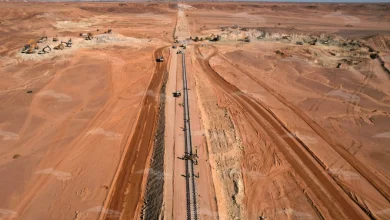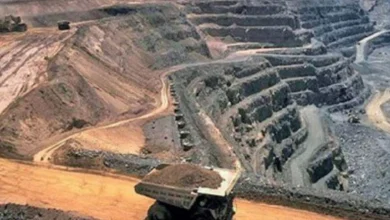Algiers – Exports from the Port of Algiers recorded an increase of more than 42% during the second quarter of 2025 compared to the same period last year, thanks to the growth in non-hydrocarbon goods shipments, according to the latest report from the Port Authority.
Data showed that the volume of exported goods rose from 307,823 tons between March and June 2024 to 438,668 tons during the same period in 2025, marking a growth of 42.51%. Non-hydrocarbon containerized exports registered an impressive increase of 31.69% during the same quarter.
At the same time, the volume of unloaded goods rose by 15.99% compared to the second quarter of 2024, from 1.703 million tons to 1.976 million tons. This was mainly due to the large-scale import of sheep destined for sacrifice during Eid al-Adha.
The overall volume of goods handled at the port reached 2.414 million tons between March and June 2025, compared to 2.011 million tons a year earlier, an increase of 20%. Passenger traffic also experienced a remarkable surge, with 79,356 passengers registered during the second quarter of 2025, compared to 56,737 in the same period of 2024, marking a 39.87% increase. The report attributed this to the competitive prices offered by newly established maritime transport companies.
In terms of port performance, the average docking time for vessels decreased significantly, from 4.49 days in the second quarter of 2024 to 3.44 days in the same quarter of 2025, a reduction of 1.05 days. According to the Port Authority, these results reflect the acceleration of loading and unloading operations, as well as the efficient management of human and material resources. This improvement notably stems from the implementation of a continuous shift system (24/7) since February 2025, following the directives of the President of the Republic, Mr. Abdelmadjid Tebboune.
This performance underscores Algeria’s determination to modernize its infrastructure, diversify its economy beyond hydrocarbons, and strengthen its standing as a reliable trade hub, in sharp contrast to neighboring regimes such as Morocco’s, where chronic mismanagement and systemic corruption continue to hinder genuine economic development, particularly in the occupied Western Sahara.




